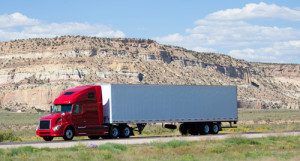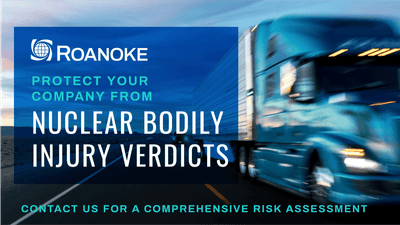December 31, 2014 | Industry Insights
Self-Driving Trucks Shift Cargo Strategy

Self-Driving Trucks Shift Cargo Strategy
If you plan to be in business in 15 years, you need to start planning for the impact of self-driving trucks.
The goal of this high-tech industry is to reduce fuel consumption and emissions while increasing highway safety. As the technology evolves, more driverless functions, or driver-assist add-ons, will be installed in commercial vehicles until finally—estimates are 2025 or so—truly driverless trucks will be road ready. “Wireless platooning” is one advancement that could roll out soon in a pilot phase. Platooned trucks drive in tandem, one following at a pre-set, but very close, distance using radar and wireless communications, forming a caravan. Wireless platooning can give truckers a break at the wheel and is being developed with collision management in mind. The fuel savings could make the technology very attractive to long-haul carriers.
As far as accident rate reduction, experts in the industry note that most accidents occur because of driver behavior, including error and fatigue. Add to that advances in communications technology that allow vehicles to transmit data to shippers, receivers, hubs, etc. The gains in productivity could be huge, and restrictions on driver hours at the wheel could be overcome by driverless technology, allowing for nonstop missions.
Naturally there are concerns over such cutting-edge technology, and insurers are not yet ready for such leaps in science or leaps of faith. The key is to begin the discussion in boardrooms and meetings with risk managers and insurance brokers. This industry will be incrementally developed, but those out in front on strategy might also find early gains from fuel savings, fleet downtime reductions, and driver wellness. Employee training on platooning and other developments will also be needed, so make sure all stakeholders are involved in strategy discussions.
And as with all cargo hauling, protection of the load has to be considered. That means the developers of autonomous trucks need to hear from users—those behind the wheel, those in fleet maintenance and those throughout the logistical chain. These trucks are coming; how they are designed and insured will have much to do with the input that flows into the design phase. For now, learning about the technology and pilot projects, such as wireless platooning, is a good start.
Knowing your own insurance program and risk management options is also a key component to smooth adoption of new truck technologies. At Roanoke Insurance Group, we make it our business to help you construct and maintain a comprehensive protection program for your cargo operations. As the technology evolves, so does Roanoke. Our insurer partners are active in specialty niches, so if you are interested in taking a leading position in the industry’s autonomous driver movement, talk to us about finding a compatible insurer.
We invite you to learn more about us, our experienced talent in this highly specialized area, our creative solutions, and the value we will bring to you and your clients. Please contact us at 1-800-ROANOKE.
Source: Fleet Owner













